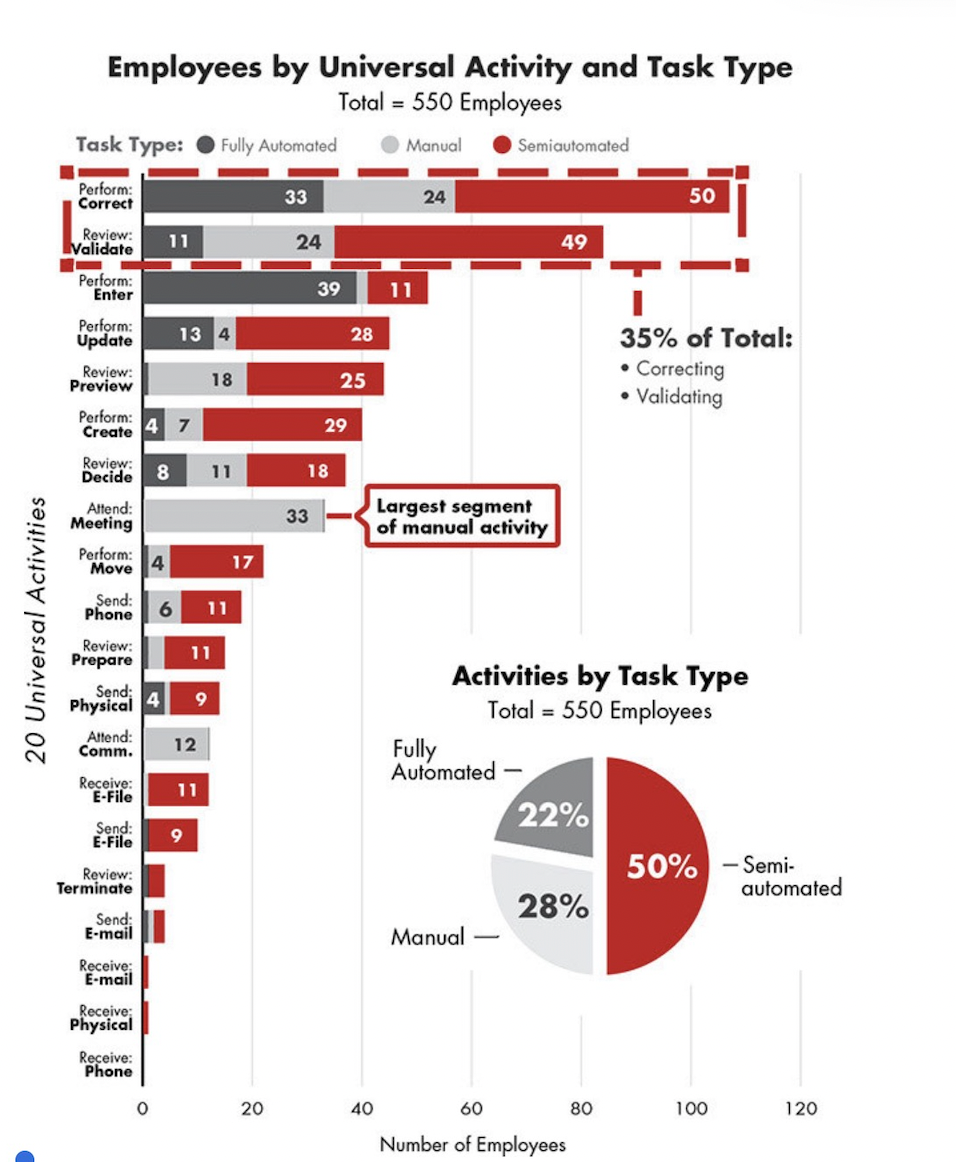I enjoyed Bill Heitman’s The Knowledge Work Factory.
It makes the strong case that knowledge workers could benefit a lot from going through the rigours using the tools of industrialisation.
Industrialisation led to the greatest advances in the well-being of humanity ever.
[pdf-embedder url=”https://www.aaronmcloughlin.com/wp-content/uploads/2022/11/What-Bent-the-Curve-of-Human-History-The-Industrial-Revolution..pdf” title=”What Bent the Curve of Human History The Industrial Revolution.”]
All that was delivered by the Three Pillars of Industrialization :
- Standardization
- Specialization, and the
- Division of labour, including the division of work, division of job positions, Division of work management and Division of perception.
If we apply these tried and tested schemes to knowledge work, productivity would spiral. It appears productivity for white-collar jobs has been low for a long while. Wietman contends it is because we have not applied the tools of industrialisation.
Your work is not unique
A major reason change is not happening is because knowledge workers contend their work is unique.
[pdf-embedder url=”https://www.aaronmcloughlin.com/wp-content/uploads/2022/11/THE-ANTI-STANDARDIZATION-BIAS.pdf” title=”THE ANTI-STANDARDIZATION BIAS”]
It is not.
What Do You Really Do
Weitman contends that all knowledge work falls into twenty Universal activities that fall into five categories.
[pdf-embedder url=”https://www.aaronmcloughlin.com/wp-content/uploads/2022/11/Knowledge-Work.pdf” title=”Knowledge Work”]
Looking at my work for the last month, it seems about right. Last week was a good week and fell mainly into 12 and 15.
I could pretend it was something far more elaborate, but at it essence that is what I do.
The problem is that if we don’t specialise, standardise, and use process charts and all other tools of industrialisation, we will spend a lot of time (35%) correcting and validating, let alone 33% in meetings.

Heitman’s given me a much-needed boost to finish my own book on standardising my lobbying into process charts, checklists and best practices.
Hi Aaron,
Thanks for this, i will definitely get this book (and looking forward to the publication of yours). The trouble is that in our environment there are a lot of people who believe their job is to be validators, ppt makers and spend their time in meetings. Companies like mine also measure the performance as the size of the slide deck and number of meetings. That is why I really like to work with people from R&D or product compliance – I think the need for creativity is genuine in these jobs!